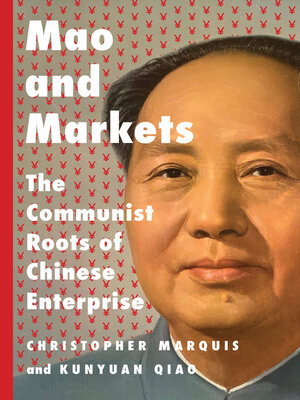
Sign up to save your library
With an OverDrive account, you can save your favorite libraries for at-a-glance information about availability. Find out more about OverDrive accounts.
Find this title in Libby, the library reading app by OverDrive.



Search for a digital library with this title
Title found at these libraries:
| Library Name | Distance |
|---|---|
| Loading... |
A thoroughly researched assessment of how China's economic success continues to be shaped by the communist ideology of Chairman Mao
It was long assumed that as China embraced open markets and private enterprise, its state-controlled economy would fall by the wayside, that free markets would inevitably lead to a more liberal society. Instead, China's growth over the past four decades has positioned state capitalism as a durable foil to the orthodoxy of free markets, to the confusion of many in the West.
Christopher Marquis and Kunyuan Qiao argue that China's economic success is based on—not in spite of—the continuing influence of Communist leader Mao Zedong. They illustrate how Mao's ideological principles, mass campaigns, and socialist institutions have enduringly influenced Chinese entrepreneurs' business strategies and the management of their ventures. Grounded in case studies and quantitative analyses, this book shows that while private enterprise is the engine of China's growth, Chinese companies see no contradictions between commercial drive and a dedication to Maoist ideology.
It was long assumed that as China embraced open markets and private enterprise, its state-controlled economy would fall by the wayside, that free markets would inevitably lead to a more liberal society. Instead, China's growth over the past four decades has positioned state capitalism as a durable foil to the orthodoxy of free markets, to the confusion of many in the West.
Christopher Marquis and Kunyuan Qiao argue that China's economic success is based on—not in spite of—the continuing influence of Communist leader Mao Zedong. They illustrate how Mao's ideological principles, mass campaigns, and socialist institutions have enduringly influenced Chinese entrepreneurs' business strategies and the management of their ventures. Grounded in case studies and quantitative analyses, this book shows that while private enterprise is the engine of China's growth, Chinese companies see no contradictions between commercial drive and a dedication to Maoist ideology.






